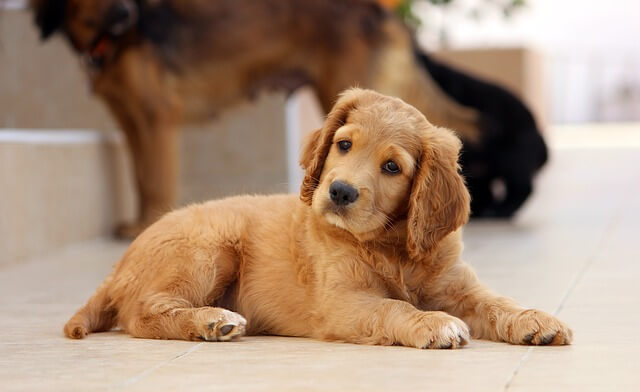5 Qualities of a Reputable Puppy Breeder
It is incredibly easy to find a puppy and a breeder, but it’s not nearly as easy to find a good breeder. When searching for the right puppy, finding the right breeder is just as integral to the process.

In addition to good breeders, puppies can always be located at local shelters, humane societies, and rescue groups. Many dogs and puppies needing homes are purebred, and with the popularity of designer breeds, the shelters can offer a whole world of designer breeds!
Places to Avoid
The places you should always avoid for a puppy: the pet store and backyard breeders. Pet stores never, ever acquire puppies from reputable breeders. Instead they are purchased from mass producers. Most pet store puppies come from states like Missouri, Pennsylvania, Kansas, and several other Midwest states, and they are shipped all over the United States. Hundreds of dogs are kenneled in each puppy mill with no regards to health, sanitary conditions, comfort, exercise, or handling.
Unfortunately, these dogs are thought of as ‘livestock’ and they are only useful as long as they can produce puppies. Puppies are often sickly, possess genetic health defects, can have behavioral issues, and are not true to breed standard.
Backyard breeders don’t operate on the same scale as a puppy mill, but like the mill, the main motivation is money. Backyard breeders simply have litters of puppies, but know little about the breed, conduct no genetic testing, and work like a sales person with little regard for the eventual home.
If a puppy is registered, avoid any registry but AKC (American Kennel Club) and UKC (United Kennel Club). These are the largest registries, and most others (like APRI) have sprung up for mass producing kennels. Some rare breeds of dogs might not be recognized yet by the AKC, but they will be registered within their breed or through a foreign registry.
Considerations to Find a Reputable Puppy Breeder
If you avoid pet stores and backyard breeders, how do you find a reputable dog breeder? There are a few qualities you should look for in a puppy breeder:
1. Breed knowledge. A good breeder is dedicated to their breed and can tell you all the good things and bad things about the breed as well as temperament considerations, potential health issues, etc.
2. Responsibility. You should always be required to sign some type of contract when buying the puppy, and part of that should provide you with a guarantee for temporary health issues (like sickness, parvo, etc), long-term genetic health guarantee, and genetic defects (behavioral) guarantee. While there is never any true guarantee when dealing with genetics, those breeders that offer this are willing to stand behind the puppies they produce.
Contracts protect you and the breeder, prevent conflicts and reduce risks.
3. Good breeders care about health testing. Every breed has potential health problems that can be genetic. It is important for you to know what they are, and then fully ask the breeder about them. Tests can be conducted for heart problems, eye problems (CAER), hearing problems, and hips and elbows (OFA) to name just a few. If the breeder doesn’t do any test certifications, skip by them.
4. Commitment. A reputable puppy breeder should be invested in their dogs and the betterment of the breed. This is the primary reasoning for breeding. Look for a breeder that is involved in breed club activities and does something with their dogs like training in obedience, rally, agility, tracking, etc. What do their dogs do?
5. Sound judgment. A good breeder should ask you a lot of questions to ensure you will provide the right home for a puppy. They should want a vet reference as well. Breeders share responsibility for the puppy and must be able to make choices that are in the puppy’s best interest.
The internet has made it very easy to locate good breeders all over the country, but not all have websites. Begin your search on the internet by looking up the national breed club, which can be found on the AKC’s website. The national breed club can give you names of members across the country as well as local breed clubs. Make sure to call the secretary for the local breed club, and they can provide you with member names.
If the breed you are interested in also has working/training clubs, be sure to contact the member reference person for those as well.
Lastly, don’t single out just one breeder to contact. Talk to several, and develop an idea of what kind of dog you would most like; then, select the breeder you feel the most comfortable with that also produces the kind of dog you would like.
